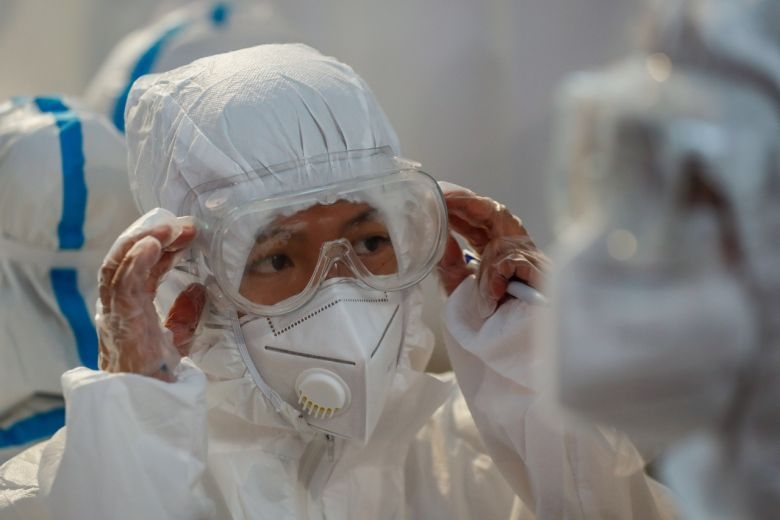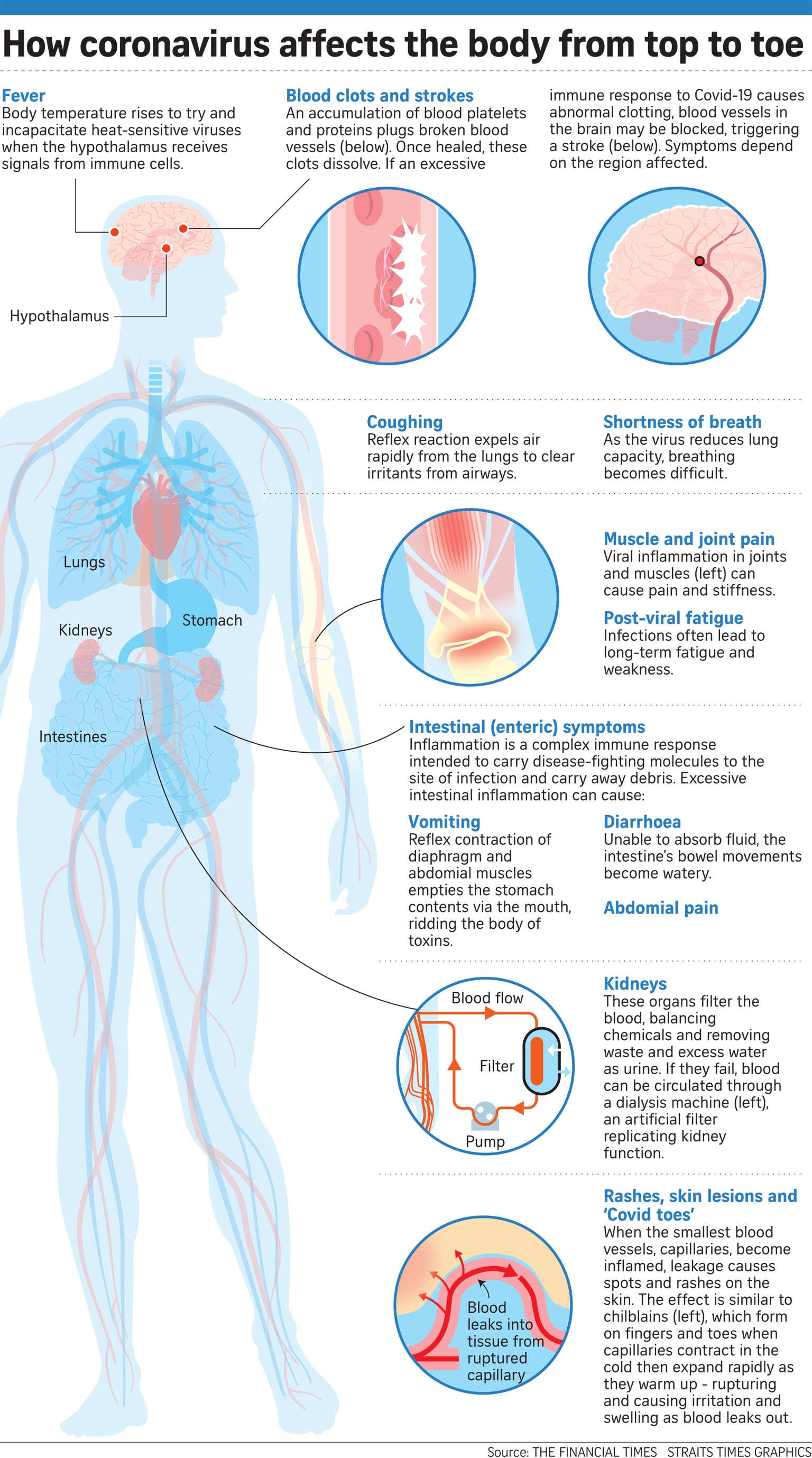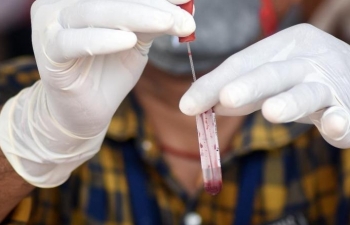Eyes are key COVID-19 transmission route
 |
| The research highlights the importance of not touching the face (Photo: Strait Times) |
Eyes are a key route by which the novel coronavirus infects humans, in addition to the upper respiratory tract, which includes the nose, mouth and throat.
The research team led by Dr Michael Chan Chi Wai, an associate professor at the university's School of Public Health, found that the coronavirus is much more efficient in infecting the human conjunctiva - the tissue lining the surface of the eye - and the upper respiratory airways, and its level of infection is comparable to that observed for H1N1, the swine flu virus that caused a pandemic in 2009, as reported by Strait Times.
The study was published in the latest issue of The Lancet Respiratory Medicine on May 8.
"This explains the higher transmissibility of COVID-19 than that of Sars. This study also highlights the fact that eyes may be an important route of Sars-Cov-2 human infection," Dr Chan told the South China Morning Post.
According to statistics provided by Oregon Live, the SARS (SARS-CoV), or severe acute respiratory syndrome, outbreak in 2003 spread to two-dozen countries and killed about 800 people before it was contained. The current novel coronavirus (SARS-CoV-2) has spread across the globe and is known to have caused the deaths of nearly 300,000 people so far.
According to SCMP, it was assumed in the early stages of the coronavirus crisis that medical personnel would be sufficiently protected by wearing N95 face masks and protective clothing, and did not need specialist glasses. These latest findings by Dr Chan's team, it says, challenge that assumption.
SCMP reported that a well-known respiratory specialist at Peking University, Dr Wang Guangfa, was suspected to have been infected by the coronavirus through his eyes.
It said that in late January, Dr Wang displayed symptoms of a fever and catarrh about three hours after he developed conjunctivitis in one eye on his return from Wuhan. He was later confirmed to have Covid-19.
 |
| (Source: The Financial Times) |
The result highlights the importance of not touching face
In a previous study, the research team discovered that COVID-19 can remain alive for a few days on smooth surfaces such as stainless steel, glass and plastic. The new finding highlighted the possibility that infectious virus can be spread from such contaminated surfaces by hands when people touch the surfaces and rub their eyes afterwards.
The finding implicated that it is vital to avoid touching eyes when in public areas, and regular washing with soap and water or cleaning hands with alcohol hand rub as an essential measure to prevent accidental transfer of COVID-19 from contaminated surfaces to human eyes and noses, Xinhuanet reported.
The outbreak of COVID-19 was first reported in the central Chinese city of Wuhan late last December. It has since developed into a pandemic, infecting more than 4.18 million people, claiming nearly 290,000 lives across the world, according to data compiled by researchers at Johns Hopkins University, as of Monday.
 | Severe Vitamin D deficiency and COVID-19 mortality rate strongly correlate In the current research, British scientists said vitamin D modulates the response of white blood cells, preventing them from releasing too many inflammatory molecules. |
 | Remdesivir approved for COVID-19 treatment in Japan Japan on Thursday became the second country, after the US, to authorise the antiviral drug remdesivir to treat coronavirus patients, the governent said, concurently concurently eyeing ... |
 | COVID-19 update: Coronavirus found in sperm samples, Chinese doctors say The new coronavirus can persist in men's semen even after they have begun to recover, a finding that raises the possibility the virus could be ... |
Recommended
 World
World
US, China Conclude Trade Talks with Positive Outcome
 World
World
Nifty, Sensex jumped more than 2% in opening as India-Pakistan tensions ease
 World
World
Easing of US-China Tariffs: Markets React Positively, Experts Remain Cautious
 World
World
India strikes back at terrorists with Operation Sindoor
Popular article
 World
World
India sending Holy Relics of Lord Buddha to Vietnam a special gesture, has generated tremendous spiritual faith: Kiren Rijiju
 World
World
Why the India-US Sonobuoy Co-Production Agreement Matters
 World
World
Vietnam’s 50-year Reunification Celebration Garners Argentine Press’s Attention
 World
World









